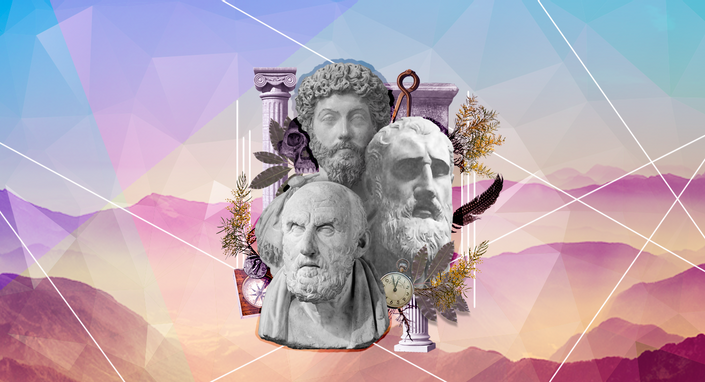Toxic people are those individuals who consistently exhibit harmful behavior, draining the energy and happiness from those around them. Whether it’s constant negativity, manipulation, or outright hostility, dealing with toxic people can be emotionally exhausting and challenging. In times like these, the wisdom of Marcus Aurelius, the renowned Roman emperor and Stoic philosopher, can offer valuable insights on how to navigate such relationships with grace and resilience.
Identifying Toxic People
Before delving into how to deal with toxic individuals, it’s essential to understand the characteristics that define them. Toxic people often exhibit traits such as narcissism, manipulation, dishonesty, and a tendency to create drama. By recognizing these behaviors, you can better protect yourself from their harmful influence.
Understanding the Impact
The impact of toxic people on mental well-being cannot be overstated. Constant exposure to negativity and toxicity can lead to stress, anxiety, and even depression. Understanding how toxic relationships affect your emotional health is the first step toward freeing yourself from their grip.
The Stoic Philosophy of Marcus Aurelius
Marcus Aurelius was a proponent of Stoicism, a school of philosophy that emphasizes virtue, resilience, and inner peace. At the core of Stoicism is the idea that we cannot control external events but can only control our reactions to them. By embracing Stoic principles, we can learn to maintain equanimity in the face of adversity, including dealing with toxic people.
Maintaining Inner Peace
One of the central teachings of Stoicism is the importance of maintaining inner peace regardless of external circumstances. Marcus Aurelius believed that true happiness comes from within and can never be derived from external sources. By focusing on cultivating inner tranquility, we can shield ourselves from the toxicity of others.
Setting Boundaries
Setting boundaries is crucial when dealing with toxic people. Marcus Aurelius emphasized the importance of knowing our limits and asserting ourselves when necessary. By clearly communicating our boundaries and refusing to tolerate toxic behavior, we can protect our mental and emotional well-being.
Practicing Detachment
Detachment is another key principle of Stoicism. Marcus Aurelius taught the importance of letting go of attachments to external outcomes and focusing instead on our own actions and attitudes. By practicing detachment from toxic individuals and their negative influence, we can free ourselves from their power over us.
Focusing on Self-Improvement
Instead of allowing toxic people to bring us down, Marcus Aurelius encouraged focusing on self-improvement and personal growth. By channeling our energy into positive endeavors and striving to become the best versions of ourselves, we can rise above the negativity and toxicity of others.
Refusing to Engage
When confronted with toxic behavior, Marcus Aurelius advocated for responding with grace and composure rather than stooping to their level. By refusing to engage in arguments or conflicts and maintaining our dignity, we can disarm toxic individuals and protect our peace of mind.
Finding Support
Seeking support from trusted friends, family members, or mentors is essential when dealing with toxic people. Marcus Aurelius recognized the value of surrounding oneself with positive influences and seeking guidance from wise individuals. Building a support network can provide strength and encouragement during challenging times.
Forgiveness and Compassion
While it may be difficult, Marcus Aurelius believed in the power of forgiveness and compassion. Holding onto resentment towards toxic individuals only perpetuates negativity and harms our own well-being. By cultivating empathy and understanding, we can release the burden of anger and resentment and find inner peace.
Moving Forward
Ultimately, dealing with toxic people is about learning from our experiences and moving forward with wisdom and resilience. Marcus Aurelius taught that every obstacle presents an opportunity for growth and self-mastery. By embracing a positive outlook on life and focusing on what we can control, we can overcome the challenges posed by toxic individuals.
Conclusion
Dealing with toxic people is never easy, but by drawing upon the wisdom of Marcus Aurelius and the principles of Stoicism, we can navigate such relationships with strength and dignity. By setting boundaries, maintaining inner peace, and focusing on self-improvement, we can protect our mental and emotional well-being. Remember, toxic people only have power over us if we allow them to. By embracing Stoic philosophy, we can rise above their negativity and live a life of tranquility and resilience.
FAQs
How can I recognize toxic behavior in others?
What are some strategies for setting boundaries with toxic individuals?
How can I practice detachment from toxic people?
Is forgiveness necessary when dealing with toxic individuals?
What role does self-care play in managing relationships with toxic people?

